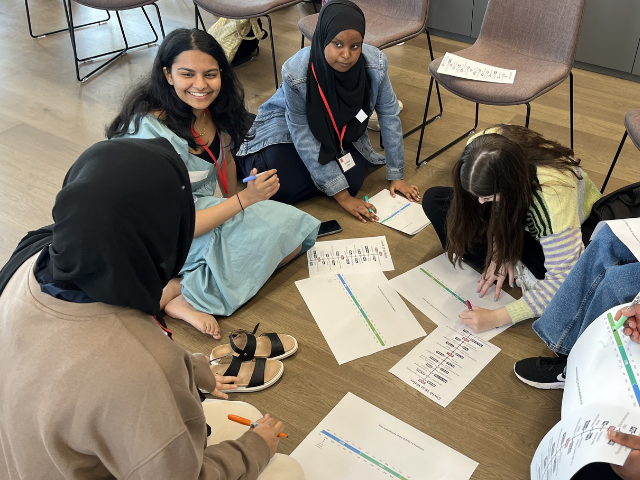
Health and Care Research Wales funds study into ethnic and religious inequalities in children’s social services in Wales
Researchers funded by Health and Care Research Wales are investigating patterns and trends associated with ethnic and religious inequalities in children’s social welfare in Wales, in a bid to better understand the relationship between social care, deprivation, ethnicity and religion.
Professor Sin Yi Cheung, from Cardiff University, said that some ethnic minority families are among the most vulnerable groups in society. Her study, Ethnic and Religious Inequalities in Children’s social welfAre (Project ERICA), aimed to document for the first time the patterns and trends in the use of children’s social services by ethnicity and religion.
Professor Cheung said: “There has been some evidence suggesting an inverse relationship between deprivation and ethnicity for children’s social care intervention. In England, research has found that some ethnic minority families living in areas of high deprivation have a very low intervention rate. Research has also found that Asian families are less likely to receive children’s social care services.
“It is very important to understand the context in Wales, which has a higher children-in-care population than England. It is the priority of the Welsh Government to reduce the number of children in care in the first place.
“The idea is to establish if there is an over- or under-intervention to address ethnic and religious inequalities in children social services. The project will examine education outcomes and health service usage among ethnic and religious minority children receiving care and support from social services.”
Professor Cheung and her research team will be working closely with data analysts at the SAIL databank on data linkage. She added: “By linking administrative data from social care, education and health, we will be able to see the patterns and trends over time, and outcomes for those from all backgrounds, in order to find the gaps for future research.
“We also work collaboratively with the Ethnic Minorities and Youth Support Team (EYST) to actively involve the service user community from ethnic and religious minority backgrounds to communicate our findings in a user-friendly way that will yield real impact.”
Initial findings suggest that mixed heritage children were the most over-represented group while Asian children were the most consistently under-represented group over the period between 2011 and 2020, despite some fluctuations.
Professor Cheung concluded: “At the end of our project, we aim to produce a digestible summary of our findings. We will publish research papers in academic journals and share the results with social work practitioners, children and youth services organisations in the UK and overseas.
“I am a qualified social worker and have always had an interest in social care research; focusing on this area is like coming back to something close to my heart. I hope this study will provide useful insight to help those disadvantaged ethnic and religious minority families and their children.”